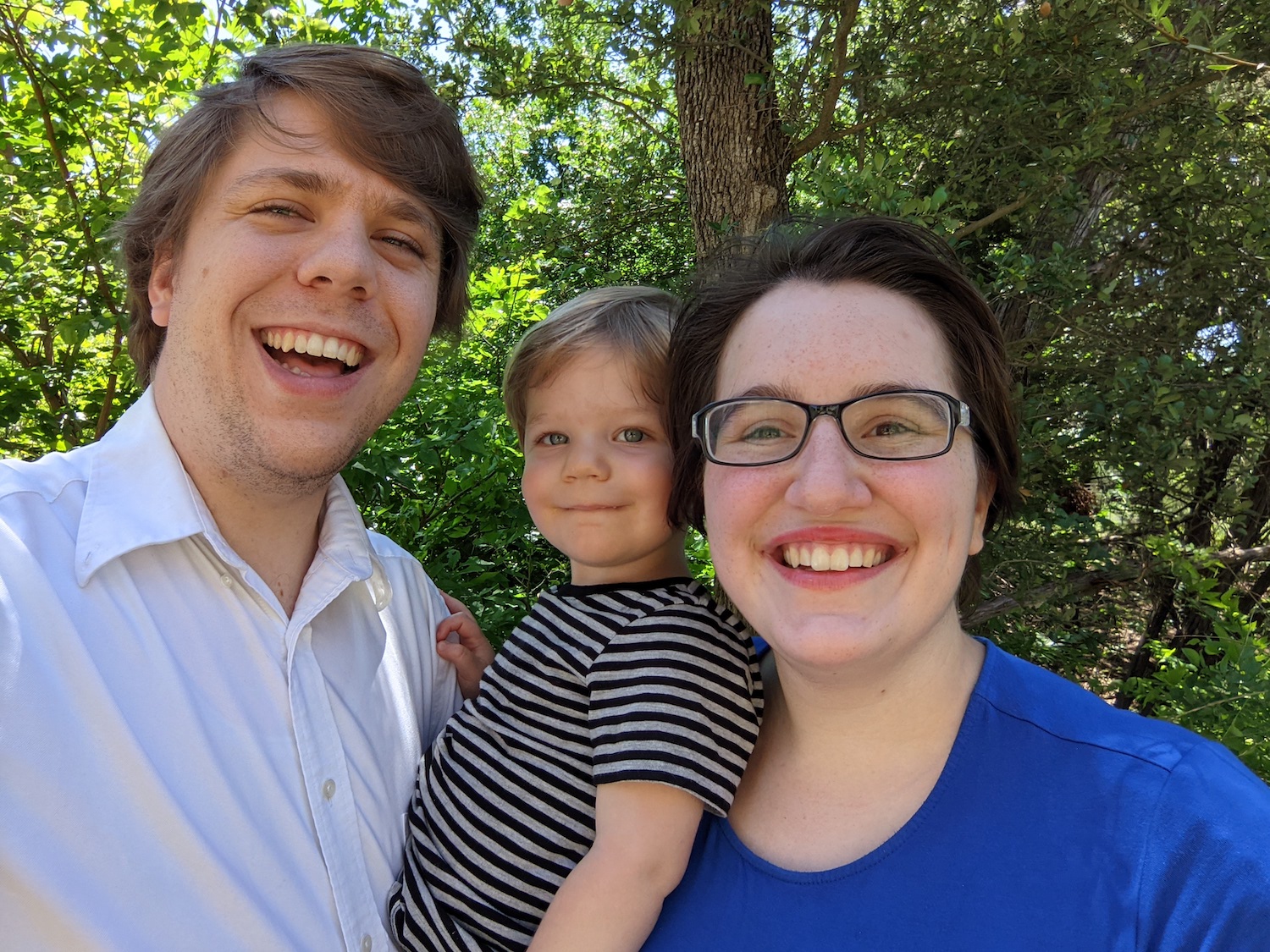In reality, it was the only place that had projects covering both of their interests. Ian graduated a year before Amelia and was hired by Continuum Analytics (now Anaconda Inc) to work on open source software development while Amelia finished her undergrad degree. He dug into his passion for practical computer science, but wanted to be able to connect it to the mathematical applications of his prior education. The natural choice for an advisor, therefore, was Dr. Keshav Pingali from both the Oden Institute and UT’s Computer Science department.
As for Amelia, she found she could be easily engaged by every area of research she could find in mathematics and algorithm development. During her undergraduate years, she took a class on geology, and immediately wanted to work on geological applications. Then she took an epidemiology class and immediately wanted to work on epidemiological applications. Then she did undergraduate research in tissue modeling and immediately wanted to work on biological applications. It turned out she just liked working with data (and the math to process it), which is why she currently works on theoretical data science with Dr. Rachel Ward. She likes being able to apply it in many different places.
“We’ve been fortunate to be involved in many exciting projects while here at the Oden Institute,” said Ian. “Amelia’s work has centered around using probabilistic models to develop streaming methods for prediction pipelines that don’t scale with existing techniques. A central part of this has been her new algorithm AdaOja, an improved version of Oja’s method for computing approximate PCA in the streaming setting. She’s used this new algorithm to great effect to drastically improve the scaling behavior of an existing dynamical system prediction technique. She’s also been able to contribute to the theory underlying some of these randomized methods.”
“There’s currently a massive disconnect between common practice in data science and machine learning and the available theory to justify those steps,” said Amelia. “Bridging the chasm between theory and practice in this domain is part of what makes my research with Dr. Ward so important. After graduating from the Oden Institute later this year, I will be starting at Sandia National Labs as one of the first recipients of their new data science fellowship.”
Ian’s work has focused on improving tools for writing parallel computations and on leveraging some of the irregular parallel computing techniques already developed here at UT for improving PDE solvers. His work on the parla tasking system for Python has been a key first step in launching the exascale computing portion of the new PSAAP III center established here at the Oden Institute. Parla meets a key need in the high-performance computing ecosystem—it provides a high-level programming environment for heterogeneous computing. GPUs and domain-specific accelerators are seeing wider use in computational science. Systems like Parla that enable rapid prototyping of heterogeneous applications will help with that transition.
“I have also worked to maintain and improve the Galois library for parallel graph processing and recently adapted concurrent priority scheduling techniques from Galois for use in marching Eikonal solvers,” Ian said. “This work has helped to improve reliability of these computations and to correct misconceptions about the parallelism available in these problems. It also helps to bridge the practical gap between state-of-the-art techniques for irregular parallel computing and advanced numerical algorithms. Currently I’m investigating various opportunities for work in industry with a keen eye toward openings that will allow me to contribute to interesting parallel computing projects while also continuing to take an active role in caring for our son.”
Toddlers, Grad Schools and Pandemics
Having a child and caring for a toddler while both parents are in grad school is a difficult task on its own. To do so in the same year as the global pandemic has certainly added additional layers of difficulty and isolation.
“When talking of challenges like this people sometimes expect a story of burning the candles at both ends to push through the difficulty,” the couple said. “We’ve certainly had our share of late nights and weird work hours, but these things only work as solutions to short-term problems. Long term exhaustion is a fast track to burnout and poor health. Severe fatigue inhibits effective work as a student and as a parent. Effective long-term solutions for us have revolved around aggressively prioritizing work that’s likely to lead to good results, creative multitasking, relentlessly focusing on moving forward regardless of delays caused by research or external factors, and communicating effectively so that we’re able to support each other and balance our shared responsibilities. Above all it’s been important for us to allow ourselves to be happy and keep moving forward even when circumstances we face aren’t ideal.
“We are very grateful for the support we have received from the program both as individual researchers and as a family. Working with the Oden Institute has been a wonderful opportunity!”
